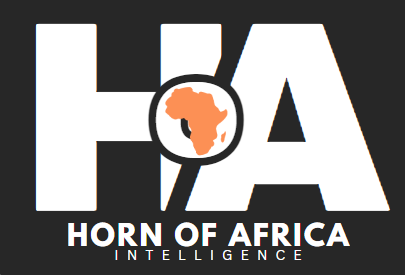The rapid advance of the M23 rebels in North and South Kivu provinces has exposed the vulnerabilities of the Congolese army, creating a volatile situation that extends beyond the immediate battlefield. The fall of strategic towns to the rebel group not only weakens Kinshasa’s control over the eastern regions but also raises concerns about the security of neighboring Ituri province, an area already plagued by violence and instability. This comes at a time when Uganda is increasingly asserting its influence inside the Democratic Republic of Congo (DRC), further complicating an already fragile geopolitical landscape.
For years, Ituri province has been a flashpoint of intercommunal conflict, with various armed groups vying for control over resources and territory. The presence of the Congolese army, though often limited in effectiveness, has at times acted as a buffer against total chaos. However, the military’s losses in North and South Kivu raise the possibility that Ituri could become the next theater of M23 expansion, given its proximity and the vacuum left by the retreating forces. The Congolese military, already stretched thin and demoralized, may struggle to prevent further territorial losses, which could embolden other armed groups operating in the province.
At the same time, Uganda has been closely monitoring the situation, mindful of its own security interests. The porous border between Uganda and the DRC has long facilitated the movement of armed groups, smuggling networks, and refugees, making stability in Ituri a critical concern for Kampala. Ugandan forces have previously intervened in eastern Congo, both in pursuit of rebels such as the Allied Democratic Forces (ADF) and to protect economic interests tied to trade and resource extraction. With the Congolese military in retreat, Uganda may see an opportunity to further entrench its presence in Ituri under the pretext of ensuring regional stability.
Uganda’s strategic interests in eastern Congo are not new, but recent events have heightened the urgency of securing its influence. The M23’s resurgence has shifted the balance of power in the region, and Kampala is unlikely to remain passive as the situation evolves. While Uganda has officially denied supporting the M23, its historical ties to the group raise questions about its true position. If the Congolese army proves unable to contain the rebels, Uganda could justify increased military operations in Ituri, whether independently or in coordination with Congolese authorities.
The potential for Ugandan involvement is further reinforced by economic incentives. Ituri is rich in natural resources, including gold and timber, making it a valuable asset for regional actors. Ugandan businesses have long been engaged in cross-border trade, and any instability threatening these economic interests could prompt Kampala to take decisive action. The DRC’s recent entry into the East African Community (EAC) has also provided Uganda with a framework to justify its role in regional security matters. Under the guise of EAC-led stabilization efforts, Uganda could position itself as a key player in determining the future of Ituri, securing both political leverage and economic benefits.
The Congolese government, for its part, faces a difficult predicament. President Félix Tshisekedi’s administration is under immense pressure to reclaim lost territory and restore confidence in the military. However, Kinshasa’s options are limited. While it has sought military assistance from regional partners, including the Southern African Development Community (SADC), results have been slow to materialize. Meanwhile, the continued presence of foreign troops on Congolese soil—whether from Uganda or other EAC nations—risks further undermining Kinshasa’s sovereignty and fueling nationalist sentiments. The longer the Congolese military remains on the defensive, the greater the likelihood that external actors, including Uganda, will assert their influence in ways that may not align with Kinshasa’s interests.
For Uganda, the situation presents both risks and opportunities. Increased military engagement in Ituri could bolster its regional standing and secure its economic interests, but it also carries the danger of entanglement in a protracted conflict. The DRC has previously accused Uganda of exploiting its resources and violating its sovereignty, straining diplomatic relations. Any misstep in Ituri could reignite tensions between the two countries, drawing condemnation from the international community. The United Nations and other international bodies have already expressed concern over the deteriorating security situation in eastern Congo, and further foreign intervention could complicate efforts to achieve a lasting peace.
As the crisis in North and South Kivu unfolds, the future of Ituri remains uncertain. The Congolese army’s defeat at the hands of M23 has exposed the fragility of Kinshasa’s control over its eastern provinces, leaving Ituri vulnerable to further instability. Uganda, driven by both security concerns and economic interests, is likely to play a more assertive role in shaping the province’s future. Whether this results in stabilization or deeper conflict will depend on how Kinshasa, Kampala, and regional actors navigate the complex realities on the ground. One thing is clear: the fall of North and South Kivu to M23 is not just a localized event—it has the potential to reshape the entire security landscape of eastern Congo.









